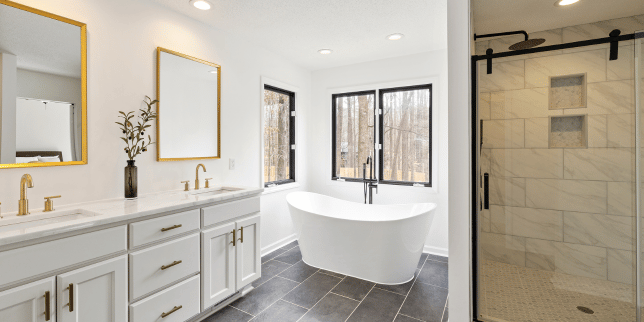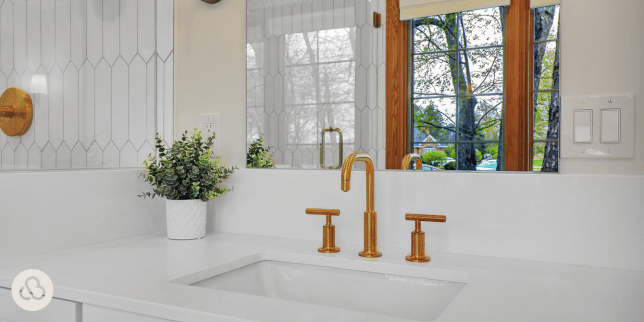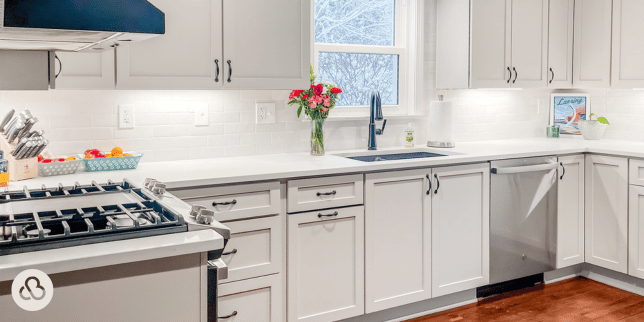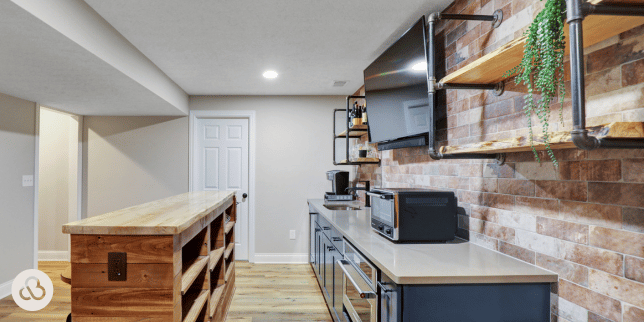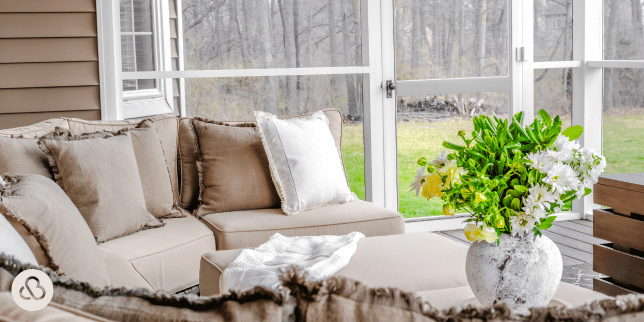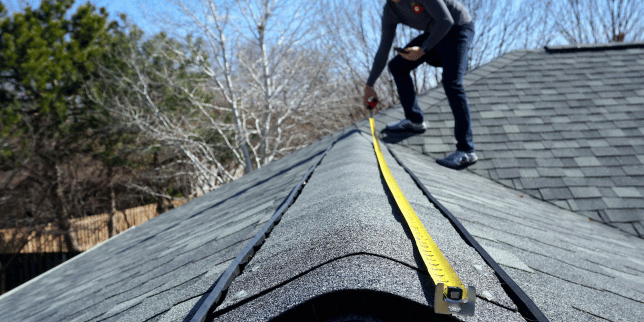Which is the Better Investment? Home Remodel vs a New Car
February 3rd, 2023
6 min read
.jpg?width=1500&height=1001&name=architect-showing-project-client%20(1).jpg)
Are you trying to decide whether to spend your money on a home remodel or a new car? Depending on your needs, either might be a good choice. Comparing the details of these investments can help make your decision easier for you.
As a premier home remodeling company in the Mid-Michigan area, we have years of experience designing and building beautiful home spaces. However, we realize that remodeling a home may not be the best fit for everyone. We want you to be happy with your choice, so we are committed to educating you on everything related to the home remodeling process.
In this article, you will compare the many aspects of investing in either your home or a new car. You’ll have a better understanding of which option is the better investment for your specific needs and circumstances.
Home remodel vs new car: investment factors to consider
Home remodeling can range in complexity from simple DIY projects to whole room additions built by a general contractor.
Purchasing a new car typically involves visiting a dealership and going through their sales process.
When it comes to determining which option is the better investment for you, you’ll want to consider several key aspects of investment including:
- Your initial investment: upfront costs associated with a large purchase or project.
- Your time investment: the amount of time and effort required to complete a project or purchase.
- Appreciation or depreciation of your asset: the value of an asset after five years, compared to the initial investment.
- Your maintenance costs: ongoing expenses required to keep the asset in good working condition.
- Your available financing options: various methods of paying for a large purchase over a set time.
Investing in your home remodel
Initial investment
The size and scope of your home remodel project will greatly affect your initial investment. Every home remodeling company will have a unique payment structure, which you can learn by contacting them.
For example, a contractor might require around 50% of the proposed cost as a down payment for your home remodel when you sign the construction agreement.
Time investment
It’s important for you to consider the amount of time you will need to invest to complete your home remodel.
While the time it takes to finish your project will depend on many factors including size, scope, and complexity, you should be aware that remodeling your home will require a considerable investment of your time. From your initial phone call through the design and build process, you can expect to spend weeks or even months completing a home remodel.
If you're planning to remodel your home, make sure you're prepared for aspects of construction that may make certain parts of your home unusable for a while.
For example, a full kitchen remodel could mean you have no kitchen access for several weeks to months. You'll want to make sure you’re comfortable with this significant time investment before starting a remodeling project.
Appreciation or depreciation
Appreciation of your home's value is one of the biggest benefits of remodeling compared with other investments. By making updates and improvements to your home, you increase its resale value and make it more appealing to potential buyers.
You’ll want to weigh the potential appreciation of your home’s value against the costs of remodeling as you determine whether remodeling your home is a worthwhile investment for you.
Maintenance costs
Maintenance costs associated with a home include regular cleaning, repairs, replacements, and updates. Remodeling itself falls under home maintenance costs. And, remodeling projects require maintenance themselves after completion.
It's important to factor in the ongoing maintenance costs when considering the financial impact of a home remodel. Properly maintaining your home will protect your investment and ensure that it remains a valuable asset.
Financing options available
There are several financing options available for remodeling your home. These include home equity loans, personal loans, home improvement loans, or credit cards.
A home equity (HELOC) loan allows you to borrow against the equity in your home, while a personal loan is a standalone loan that is not secured by your home.
A construction loan is used by people to either build a new structure or remodel an existing one. This is a viable financing option for homeowners who want to use this to finance their home remodel.
Securities-backed lines of credit are another possible funding source for your home remodel. They allow you to borrow money using securities held in your investment accounts as collateral. SBLOCs are similar to HELOCs but use your investments as collateral instead of your home’s value.
A home improvement loan is a type of financing that is specifically designed to cover the costs of home renovations and updates. Like home equity loans, home improvement loans may also be secured by your home, meaning that it will serve as collateral for the loan.
Credit cards are also a viable option for financing a home remodel although they are generally not the most cost-effective choice due to high interest rates.
Contractors may also offer their own financing options that allow you to pay for your remodel over time, rather than using a traditional, short-term payment structure.
Investing in a new car
Initial investment
The initial investment or down payment for purchasing a new car will depend on the loan amount as well as financing terms and options.
In general, the larger the down payment, the more likely you are to be approved for a car loan. This is because a larger down payment demonstrates to the lender that you are financially stable and have the resources to make your monthly loan payments. Larger down payments are also associated with larger loan amounts.
When purchasing a new car, you’ll want to consider your budget and make a down payment that is feasible for your financial situation.
Time investment
Purchasing a new car involves researching, visiting dealerships, test driving, negotiating a price, and completing necessary paperwork.
The time you spend ultimately depends on how many vehicles you are comparing and how thorough you want to be, but can range from a few hours to several days, or longer.
Appreciation or depreciation
One of the greatest downsides of purchasing a new car is depreciation. According to Kelly Blue Book, a new car can lose 20% of its value in the first year alone, and up to 60% after five years.
It's important to keep in mind that the depreciation of a new car can have a significant financial impact over time that will affect the overall value of the vehicle. This is a big factor to consider when deciding whether purchasing a new car is a good investment for you.
Maintenance costs
Common maintenance for new cars includes oil changes, brake replacements, car washes, tire rotations, air filter replacements, and sensor replacements. The extent of these costs will depend on the number and type of miles you drive.
It's important to budget for ongoing maintenance costs and to follow the recommended maintenance schedule to help ensure the longevity and performance of your vehicle.
Financing options available
When it comes to financing a new car, you have a couple of options. You can get approval for a car loan through the dealership, or you can get pre-approved financing through your bank.
Securing financing for a new car involves applying for a car loan and getting approved for the loan. This process typically means providing proof of income, employment, and credit history to the lender.
Your lender will review this information and decide whether to approve the loan based on your creditworthiness.
Once approved, you will typically be required to make a down payment and will sign a loan agreement with the terms and conditions of the loan, including the interest rate and repayment period.
It's important to carefully review the loan documents and to make sure you understand the terms before finalizing the loan.
Either financing through a dealership or your bank can be a good choice, depending on your financial situation and the terms of the loan. You’ll want to compare the different loan options and choose the one that best fits your budget and financial goals.
Home remodel vs new car: Which is best for me?
Ultimately, this depends on your circumstances, priorities, and finances!
Home remodeling is a good investment for you if:
- You want to invest in an asset that appreciates over time
- Your home is in need of maintenance, repairs, or updating
- You want to increase the resale value of your home or make it more appealing to potential buyers
- You want to make changes to beautify your living space, make it more usable, or enhance your lifestyle
- You have time and financial resources to invest in the design and build process with a general contractor, or to do it yourself
A new car is a good investment for you if:
- You have the means and you want to purchase a dream car
- You are financially stable enough to invest in a depreciating asset
- You depend on a car for your livelihood and need a dependable option
Next steps for determining what’s best for you
Deciding on whether a home remodel or a new car is the better investment for you can be challenging with so many aspects of investment to consider.
It's important to consider your budget, time investment, maintenance costs, the change in value, and financing options when making your decision.
While we are a premier design and build company with over 15+ years of experience building dream home spaces, we understand that remodeling your home is a significant time and financial investment, which may not fit within your current resources.
In that case, it is our goal to provide you with valuable information so that you can make the right choice for you.
Are you ready to invest in remodeling your home? Our team at Custom Built is here to help. Book a consultation with one of our project development advisors to see if we are the right fit for you.
To learn more about the costs associated with home remodeling, read about the following topics:
Michael brings over 2 decades of building and remodeling experience to his position as the Owner and Visionary of Custom Built. Michael’s passion to make an impact on the home building industry has led him to serve for over ten years at the local and state Home Builders Association, culminating as President of the HBA of Michigan in 2020.
Topics:


















